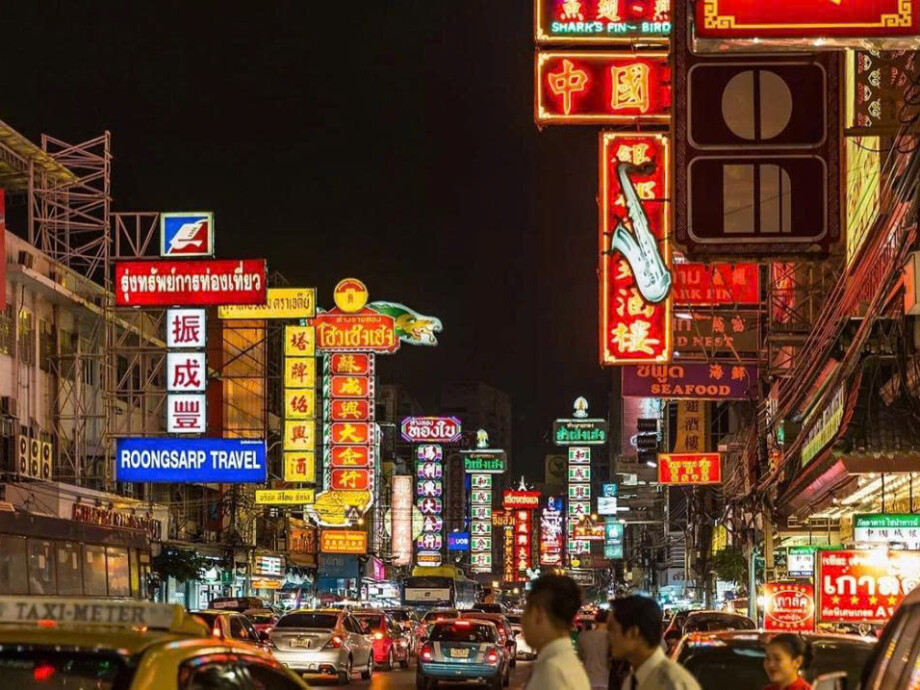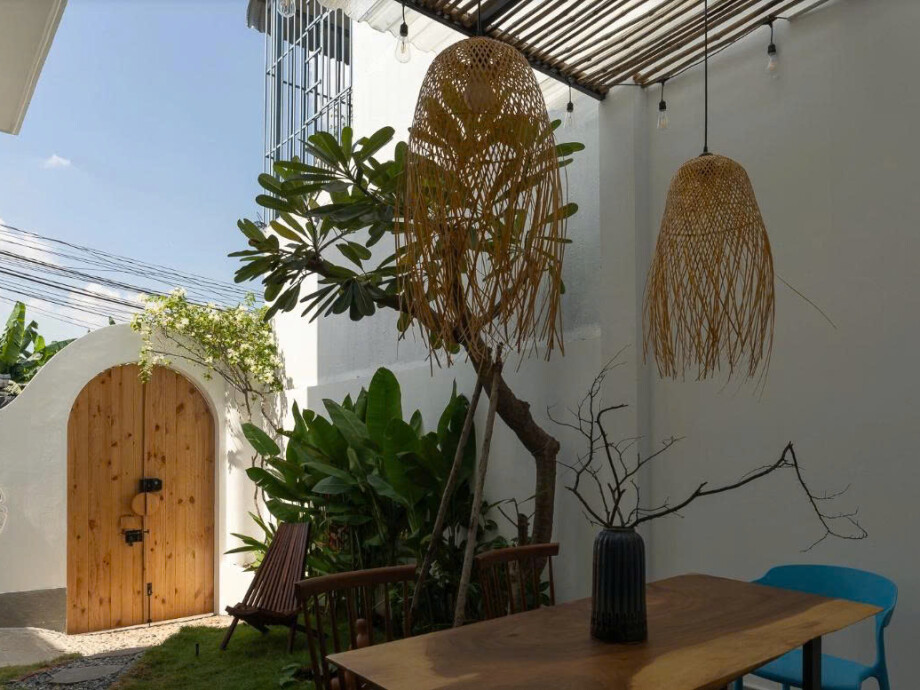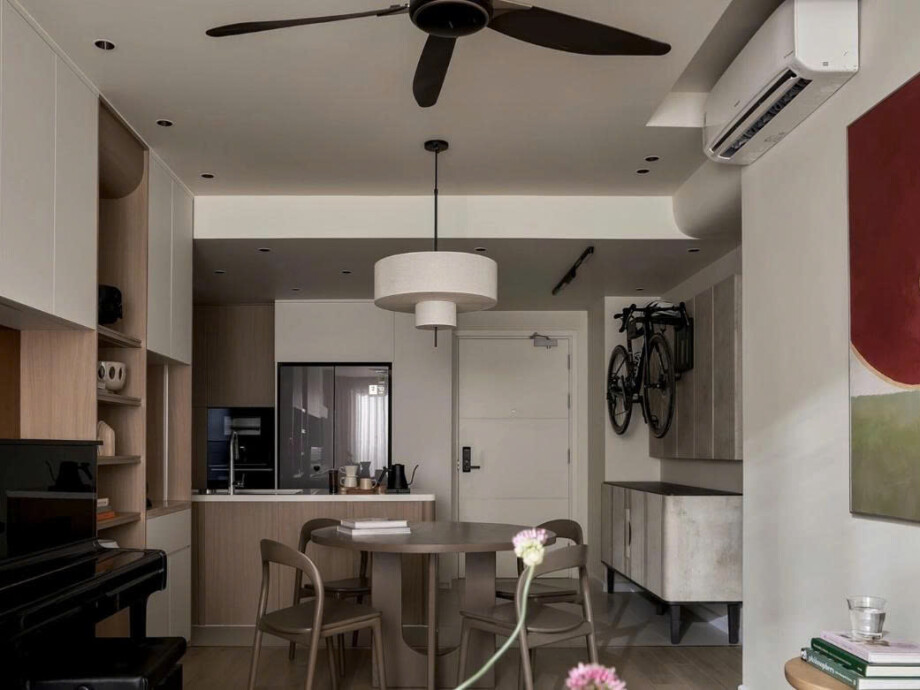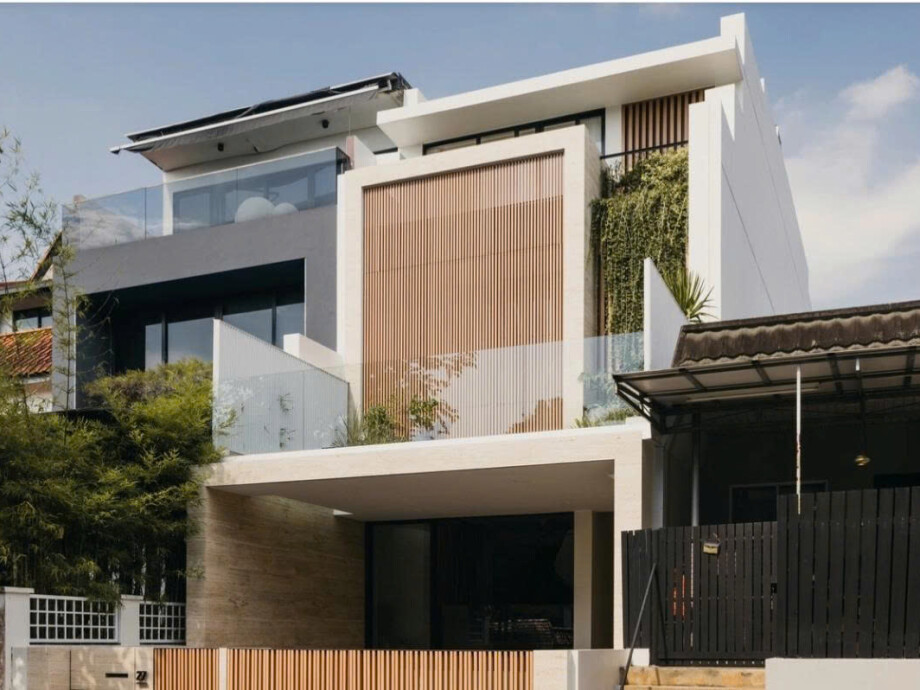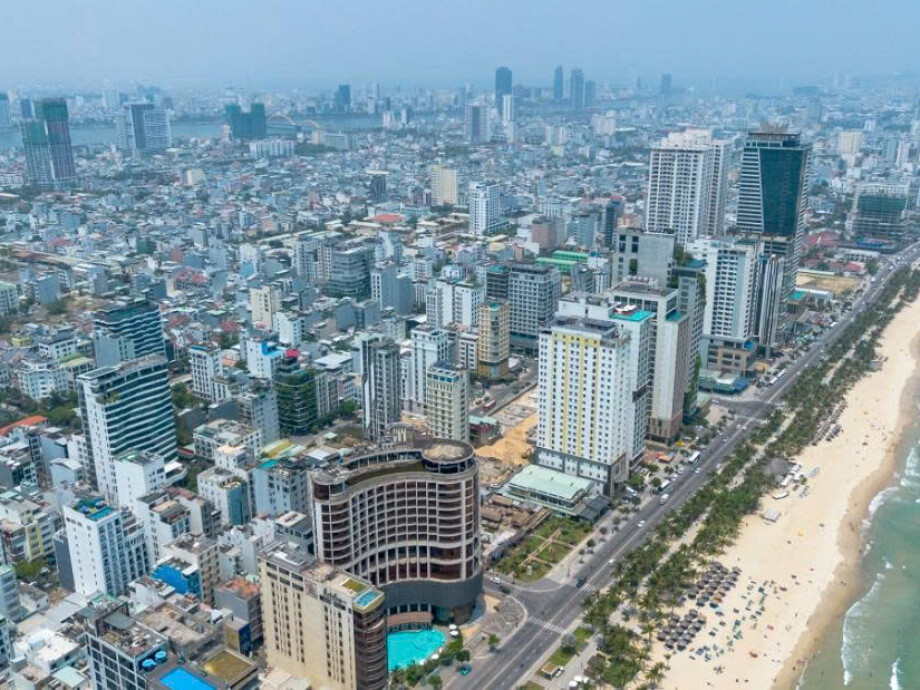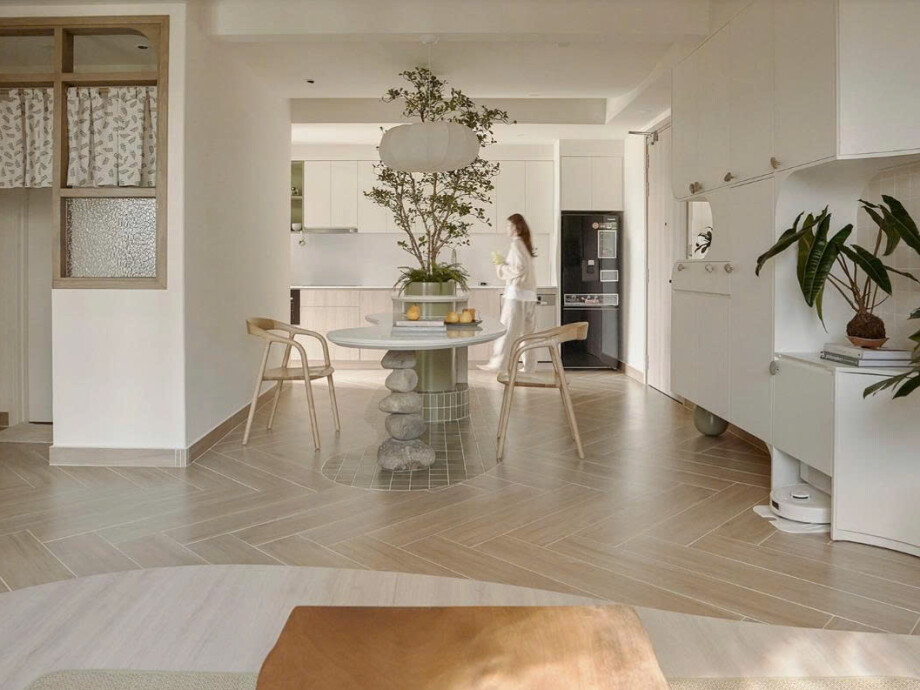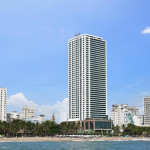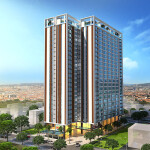Types of agricultural land: Distinction, symbols and purposes of use
Guide news
05/04/2025
What is the concept of agricultural land?
Agricultural land is understood as a land area with stable area, boundary, location, and properties that change periodically and can be predicted. This is the type of land allocated by the State to people to meet the purpose of agricultural production. Including activities of cultivation, livestock, aquaculture, and forestry. Agricultural land plays the role of both means of production and labor. At the same time, this is the main, irreplaceable labor force in the agricultural and forestry sector. Simply put, agricultural land is the area zoned for cultivation, livestock, poultry, aquatic products, and other production activities.
.jpg)
Agricultural land used for growing crops and raising livestock
Types of agricultural land
Currently, agricultural land in Vietnam has the largest area and is strictly classified according to the provisions of law. Based on Article 10 of the Land Law issued in 2013, agricultural land is divided into basic groups, including:
- Annual agricultural land:
Land area used for the purpose of growing rice and other annual crops. In which, annual crops are planted and harvested within a period of no more than 1 year, to keep the roots for harvest or no more than 5 years, agricultural land is cultivated irregularly in cycles. (Excerpt from the guidance on determining types of crops issued by the Ministry of Natural Resources and Environment in Circular 02/2015/TT-BTNMT).
- Land for perennial crops:
This type of land is used for the purpose of planting trees once, growing and harvesting continuously for many years. Including perennial fruit trees, perennial industrial trees, gardeners intercrop many types of trees including perennial trees. In addition, there are some types of trees for timber, shade trees, trees for landscaping in residential areas or large cities.
.jpg)
Land area for the purpose of growing perennial industrial crops
- Land for production forests, special-use forests or protection forests:
Land with natural forests or planted forests, land areas zoned for forest restoration (land assigned for management, land leased for protection and protection for the purpose of natural forest restoration); land areas for new forest planting (land assigned for management, leased for the purpose of forest planting, land with forest trees but not meeting forest standards). Accordingly, forestry land is divided into 3 main groups: protective forest land, production forest land and special-use forest.
- Land for aquaculture:
Land used specifically for aquaculture and seafood farming. This includes land for brackish water aquaculture, saltwater aquaculture, and land dedicated to freshwater aquaculture.
- Salt land:
Is the land of low-lying fields near the sea used for salt production. This type of land is often located in coastal areas.
- Other agricultural land:
What is other agricultural land? Including land used for the purpose of building greenhouses and other models for growing plants, including forms of hydroponics not directly on the land; building areas for raising livestock, poultry and other animals not prohibited by law; land for growing plants, raising livestock, and raising aquatic products for study, research and experiments; land for cultivating seedlings and land for growing flowers and ornamental plants.
.jpg)
Land for growing flowers and ornamental plants is classified as other agricultural land.
Classifying agricultural land types based on production purposes and functions helps facilitate management, provides terms of use, limits of use and other regulations on taxes, transfers, and changes in land use purposes decided by competent agencies and organizations.
Legal agricultural land users are those who are granted land use right certificates or are leased. The documents clearly state the type of land, have their own symbols and are stored in the records of the land management agency. Thanks to that, managers under competent agencies can easily issue policies, land users understand what agricultural land includes, ensuring the implementation of their obligations and rights.
Symbols of agricultural land types
Because there are many different groups of agricultural land, agricultural land types are specifically marked for easy distinction and marked on maps according to regulations. In particular, agricultural land groups are marked into 12 types, specifically listed in the table below:
STT | Loại đất | Ký hiệu |
1 | Đất chuyên trồng lúa nước | LUC |
2 | Đất trồng lúa nước còn lại | LUK |
3 | Đất lúa nương | LUN |
4 | Đất dùng trồng cây hàng năm khác | BHK |
5 | Đất nương rẫy dùng trồng cây hàng năm khác | NHK |
6 | Đất trồng cây lâu năm | CLN |
7 | Đất rừng sản xuất | RSX |
8 | Đất rừng phòng hộ | RPH |
9 | Đất rừng đặc dụng | RDD |
10 | Đất nuôi trồng thủy sản | NTS |
11 | Đất làm muối | LMU |
12 | Đất nông nghiệp khác | NKH |
* Note: The above brief symbols of agricultural land types are shown on cadastral maps and red books to clearly indicate the area and type of land that has been granted a land use right certificate, which can verify the origin of the land when transferring and fulfilling tax obligations.
What types of agricultural land are not allowed to be converted to residential land?
Currently, the demand for converting land with the right to use from agricultural land to residential land (or non-agricultural land) is extremely large. However, not all types of agricultural land can be converted to non-agricultural land. So the question is, which types of land are not allowed to be converted?
.jpg)
The demand for converting agricultural land to residential land is increasing.
In fact, based on the 2013 Land Law and other Circulars and Decrees guiding its implementation, there is no specific regulation on which types of agricultural land the land user is not allowed to change the purpose of use. State agencies clearly define the permission to change the purpose of land use based on 2 most specific bases. Specifically as follows:
- Basis 1: The annual land use plan proposed by the district People's Committee is approved by the competent state agency.
- Base 2: The purpose of land use is stated in detail in the application for land allocation, land lease, investment project on land, and conversion of land use purpose.
In practice, based on the purpose of use, some types of agricultural land are very difficult to be approved for conversion to residential land. The reason is that this land is not under the management of families or individuals but is planned by the State to carry out many different purposes. Including specific types in the following table:
Đất làm trụ sở cơ quan | Đất làm công trình sự nghiệp khác |
Đất làm trụ sở tổ chức sự nghiệp | Đất quốc phòng |
Đất làm cơ sở văn hóa | Đất an ninh |
Đất xây dựng cơ sở y tế | Đất khu chế xuất |
Đất làm cơ sở giáo dục và đào tạo | Đất giao thông |
Đất làm cơ sở thể dục thể thao | Đất làm công trình bưu chính, viễn thông |
Đất khu công nghiệp | Đất thủy lợi |
Đất phục vụ làm vật liệu xây dựng, đồ gốm | Đất sinh hoạt cộng đồng |
Đất dùng cho các hoạt động khoáng sản | Đất có mặt nước chuyên dùng |
Đất công trình năng lượng | Đất danh lam thắng cảnh |
Đất sở hữu di tích lịch sử – văn hóa | Đất bãi thải, xử lý chất thải |
Đất làm nơi vui chơi, giải trí công cộng | Đất chợ |
Đất cụm công nghiệp | Đất làm công trình công cộng khác |
Đất làm cơ sở khoa học và công nghệ | Đất cơ sở tôn giáo |
Đất dùng cho sản xuất phi nông nghiệp | Đất cơ sở tín ngưỡng |
Đất xây dựng cơ sở ngoại giao | Đất nhà tang lễ, hỏa táng, nghĩa trang, nghĩa địa |
Đất làm cơ sở dịch vụ xã hội | Đất có sông, rạch, suối, ngòi, kênh |
In addition to the types of land in the table above, people with the right to use the following types of land also have difficulty converting them into residential land because the State implements special protection policies. In particular, land for rice cultivation, salt production, and forestry is always prioritized and is very difficult to be approved for conversion of land use purpose into residential land.
- Land for rice cultivation.
- Protective forest land
- Special-use forest land.
- Salt-making land.
With the information about agricultural land types shared by Rever above, you must have known what type of land you own, whether it is possible to convert it to residential land or not. In fact, depending on the specific area, the land use plan and approval for residential land will be different, you should contact the competent authority directly for specific advice.
Get the latest information !
Receive the latest market information sent via email week
Featured news
Articles on the same topic
Mỗi món đồ nội thất đều có chủ địch rõ ràng, nhờ đó không gian sinh hoạt chung và riêng giữ được khoảng "thở", cân bằng và thoáng đãng.
18.08.2025
Mỗi bước di chuyển giữa các không gian nội thất, gia chủ đều cảm nhận được khung cảnh ngập tràn ánh sáng và mảng xanh.
14.08.2025
Khu rừng tràm và dương xỉ ở xã Cam Lâm hút giới trẻ nhờ khung cảnh thơ mộng, xanh mát như bước ra từ truyện cổ tích.
14.08.2025
Chiếc xe đạp được treo ngay cửa vào, thể hiện cá tính chủ nhân, phía dưới là tủ giày được thiết kế cùng chất liệu thô mộc.
14.08.2025
Hệ cửa và giếng trời đa dạng cho phép ánh sáng đi vào không gian trong nhà, biến các bề mặt thành những bức tranh.
11.08.2025
Viện Kinh tế tài nguyên và môi trường TP HCM kiến nghị cho doanh nghiệp tự khai, tự nộp tiền sử dụng đất nhằm rút ngắn thủ tục, giảm nợ đọng và thúc đẩy hoạt động đầu tư.
11.08.2025
Màu sắc và không gian nội thất được thiết kế trên ý tưởng ly matcha latte nhiều sữa, tạo cảm giác thư giãn cho gia chủ sau một ngày dài.
01.08.2025
Khi đầu tư 50 triệu cho phòng karaoke, Minh Quân nghĩ sẽ là nơi giải trí thường xuyên cho cả nhà chứ không ngờ nó lại thành phòng chứa đồ đạc thừa.
31.07.2025
Căn hộ thể hiện xu hướng thiết kế hướng đến cá nhân hóa, giúp nâng cao chất lượng sống thay vì chỉ tạo hiệu ứng thị giác.
30.07.2025
Mỗi không gian chức năng của căn nhà được cải tạo theo hướng tối giản, đầy đủ tiện nghi hiện đại nhưng vẫn đảm bảo gọn gàng.
23.07.2025

Typical projects
50-70 million/m2
50-70 million/m2
48 triệu/ m2
50-70 million/m2
50-70 million/m2










